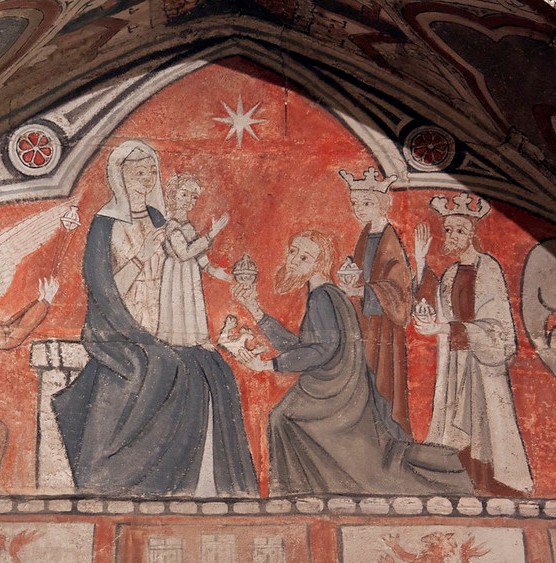The Feast of Epiphany brings to an end the Nativity narrative – set in Bethlehem – by the entry of the three Wise Men from the East. Before considering their significance, it is necessary to confront the fear that the three –portrayed in paintings (and reproduced on plenty of Christmas cards) as Kings bearing gifts – supplant the poor shepherds from the story. Coming from Latin America –where the theology of liberation emerged in the midst of massive inequality and injustice – Pope Francis continually gives the lie to any theological interpretation and image of the church which ignores the poor and peasants, the marginalized in society. While today’s reading is taken from the Gospel of Matthew – Saint Luke’s version of the birth (and the life) of Jesus values the presence of the poor as Mary had proclaimed previously:
‘He has scattered the proud in the thoughts of their heart. He has taken down princes from thrones and raised up the lowly. He has filled the hungry with good things and sent the rich away empty’.
These surprise – if not strange – three visitors are remembered not for their wealth but for finding their way to Christ, kneeling before him and paying him homage as they would do for a king at home. Their understanding of him as King would not be complete until after Jesus had been crucified beneath the caption ‘The King of the Jews’ and raised from the dead. They learn, in the course of their journey to Bethlehem and back ‘by another road’, the poetic truth that taking ‘the road less travelled has made all the difference’.1 However, like the Greeks who, Saint John tells, ‘went up to worship at the festival’ and ‘wish[ed] to see Jesus’, had to hear Jesus’ words, ‘unless a grain of wheat falls into the earth and dies, it remains just a single grain; but if it dies, it bears much fruit’ (Jn 12:24), the Wise Men had to learn the paschal truth of God’s Kingdom personified in and by the Christ child they saw in the crib. Through the paschal mystery of his birth and life, death and Resurrection Jesus, in the words of the Second Vatican Council, ‘also opened up a way. If we follow this path, life and death are made holy and acquire a new meaning’.2 The Wise Men were well on their way to recognizing the entire Epiphany, expressed by Jesus himself: ‘I am the way, and the truth, and the life’ (Jn 14:6).
[1] Robert Frost, ‘The Road Not Taken’.
[2] Gaudium et spes – Church in the Modern World, par. 22.
Fr Kevin O’Gorman SMA, Wilton, Cork

